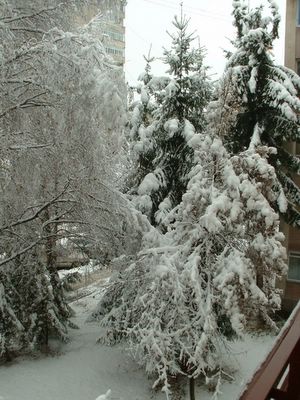So, I’ve teased you (the reader) for a while with references to TB and chest X-rays, and I feel it is now time to come clean. It is, as you may have guessed, yet another example of my continuing adventures in Romanian bureaucracy (and British in this case).
Going back to the beginning, much of this started when I checked out the regulations regarding registering our upcoming daughter as a British citizen. It was then that I learned that under British law, a baby which is “illegitimate” is not entitled to be a British citizen, regardless of whether its father is British. Now, obviously my first reaction to this piece of news was to launch into a tirade of abuse at my own country’s government for being so bloody Victorian. I mean “illegitimate”? Come on. That word in the sense of the meaning “born out of wedlock” became obsolete years ago, surely. Do people really still refer to babies born to parents who are not legally wed as illegitimate in the real world? Why not just call them bastards and be done with it?
Anyway, once I got over my twenty first century rage at my nineteenth century government, we started thinking about what we needed to do to enshrine in law the various rights responsibilities and support for our family. One day in the not too distant future these rights and responsibilities will not need to be linked to a marriage certificate, but for now, at least in Romania, and seemingly in quaint old-fashioned Britain, they are. And so, we decided to go ahead and sign the necessary documents that give you the requisite legal status, or, as it’s often referred to, get married.
And so, obviously, we one again set out on an extended stroll through the dark forest that is the Romanian bureaucracy. In fact, initially, all seemed remarkably easy. We went to the city hall and they told us we needed was our birth certificates, proof that neither of us were already married to someone else, and a medical certificate. Three things. That was all. It seemed too good to be true. And, it was.
The birth certificate was relatively easy. It had to be translated into Romanian and the translation notarised, which as ever with notarising cost an inordinate amount of money, but generally speaking it was easy.
Next up was the hard part. Proving that I wasn’t married. Now, as you know, proving something doesn’t exist is much harder than proving something does exist. For Erika it was relatively easy, since she’s lived all her life in Romania, and she could at least produce a divorce certificate. For me, things were slightly more complex. I had visions of having to get sworn statements from everywhere I’ve ever lived saying that I hadn’t got hitched while in their jurisdiction. Getting one from the Federated States of Micronesia would have been particularly tricky, especially since marriage there was more or less merely a transaction involving the exchange of pigs, without any great legal mumbo jumbo. But it turned out all I needed to do was swear in front of the British consul in Bucharest. Sounded like exactly my kind of deal. Sadly, it wasn’t as fun as it sounds. (How cool would it have been to have to have found a way to be captured on film getting in his way and saying “bollocks”?) I travelled, then to Bucharest on the morning minibus (my first, and I hope last, experience of using this particular leg-compressing mode of transportation), showed up at the embassy, and filled in various pieces of paper protesting my singleness (or bachelorhood – once again I was taken aback by the archaic language promoted by the British Government and its representatives overseas. At one point I had to fill in a table with my and Erika’s information, one column of which was marital status. There I am looking for the “unmarried” option, or at a pinch “single”. But no. Here in the world of official documentation we are still using such words as “bachelor” and “spinster”). I then had to wait for the vice consul to show up and read in front of her a document which said that I was not married and over 18 and so on. Then we both signed it and she put this big official stamp on it and I was charged 4.5 million Lei, which seemed a bit steep. The remainder of this process involved them pinning the notice of my intention to marry outside the front gate of the embassy for 21 days in some kind of mediaeval style proclamation so that any of my other wives who happened to pass the building and glance at the noticeboard could then put a stop to my polygamy. Since I haven’t heard from them, I assume this didn’t happen.
At least once I got the train home, and therefore completed a 14 hour day for the sake of half an hour of quality time in an embassy waiting room, I felt it was all taken care of. So now all that was left was the medical certificate. I assumed that this would be a fairly simple procedure. This, however, is where the red tape really began to kick in. A visit to the relevant doctor was all that it took to shatter my illusions. On her door was the list of five items we would need to bring in order for her to sign off on our permission to marry. That’s five more pieces of paper each of us needed to get in order to get through this final hoop. I can’t even remember what half of them were now, but they were all ridiculous. I mean the proof that I wasn’t married already, I could at least see the point of, but why on earth would I need a chest X-Ray? Are people with TB prevented from marrying in Romania? Isn’t that a tad discriminatory? Is there a support group for tuberculosic singles? Can I even say “tuberculosic”?
Well, it was proved through the magic of radiography that I don’t have TB (Erika avoided that one on account of X-Rays being contraindicated during pregnancy – so women with TB can get round the state restrictions by getting pregnant before applying for the clearance), and by blood test that I don’t have syphilis or some other things (not HIV/AIDS apparently – not sure if that’s because the bureaucracy hasn’t yet caught up with the existence of such diseases or because HIV is not seen as a barrier to marriage in the same way that, say, TB is).
To cut a long story short, or slightly less long I suppose since I’ve already gone on a bit, we finally got the medical certificates, combined them with the other documentation and presented them at the City Hall. Once Erika’s clearance had come through (i.e. after no-one had commented on her name being similarly pinned on the wall of the city hall) we were free to go. And so we did. Though there was one final scare, five minutes before the wedding, when the woman filling in the forms suddenly hit a wall regarding the difference between my citizenship and nationality. Now, to me, there is no difference between the two. I have a UK passport and UK nationality. But here, it’s a huge deal. 90% of this town list their citizenship as Romanian but their nationality as Hungarian. So my attitude that they were the same baffled her. Eventually she offered up “English” as nationality, which I accepted in order to placate her.
My next adventure in red tape is likely to be getting the birth certificate sorted out. That sounds like one I’ll have to do fairly solo. I presume anyway - it certainly sounds like the kind of thing that fathers ought to take care of.






